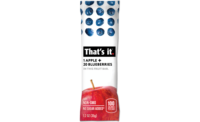Top That
By Bob Garrison
Schwan Invests in Technology and Training to Keep its Florence, Ky., Plant on Frozen Pizza’s Cutting Edge.
Kentucky. A red state? A blue state? Forget political distinctions. This is a sports debate. December found the big red University of Louisville Cardinals — Big East Conference football champions — preparing to meet Wake Forest in the FedEx Orange Bowl. Hitting the hard courts, meanwhile, were legendary basketball programs at U of L and the University of Kentucky (known for its royal blue).
Elsewhere, visitors can find that same competitive spirit in Florence, Ky. — inside the walls of a frozen pizza plant operated by Schwan’s Global Supply Chain. A division of The Schwan Food Co., the Global Supply Chain group produces items for each of Schwan’s retail, foodservice and home service businesses.
The 31-year-old Florence plant produces more than 400 million pizzas annually and is home to multiple production lines operated by some 1,100 people who together produce more than 130 different frozen items for all three divisions — with most of its volume being dedicated to foodservice and retail under the successful Freschetta, Red Baron and Big Daddy’s brands.
Florence flexes its competitive muscle in several ways. For example, Randy Ingolia, senior director of manufacturing, notes, that one plant associate earned Schwan’s prestigious “President’s Award” for an idea that not only improved product quality, but also showed significant cost savings for the company. The Florence plant also has won the coveted internal “Alfred Schwan Award for Manufacturing Excellence” two years in a row.
“I’ve told [company officials] to get the FedEx label ready because we’re taking [that award] again for 2006,” Ingolia says. “In addition, I am proud of the accomplishments of our team, who have maintained continued efficiency in output while implementing large capital investment programs [new production equipment] and adjusting to new programs in the rest of the plant.
“We have supported the business units with many significant new product launches — Schwan’s strategy of driving growth through innovation certainly does create dynamic interest and great opportunity for individual growth,” he adds. “Innovation comes in several forms, including products for our consumers, manufacturing technology, systems improvements and service to our customers. Each of these complements our focus on employee development and drives through to our customers.
“Whenever you make a change, you’re going to see benefits, as well as issues surfacing,” Ingolia continues. “In our case, the associates have responded well and even taken our operation to a new level. I’m proud of what they’ve been able to accomplish.”
Ongoing Change in Florence
Change is nothing new to Florence, a site that has been expanded 13 times since Schwan acquired the building in 1986. During his eight years with the operation, Ingolia says he has introduced more than $100 million in capital improvements — everything from automated production lines to robotic palletizers.
Yet he quickly asserts, “There isn’t a machine on that floor that makes a pizza. We strongly believe that our people make our business. They’re our greatest asset.”
To leverage that asset, Ingolia says Schwan likewise invests in employee training and development.
“We have to develop the infrastructure of training and employee development to support our technology,” he says. “Because as we grow — and the business changes — we need that infrastructure to be solid. One of the greatest challenges we have is to anticipate market changes and stay ahead of our plan. That’s what keeps me awake at night — [asking] ‘Are we ready?’”
Recognizing, too, that its employees know best how to improve lines and resolve operational issues, Ingolia says he’s determined to drive more decision-making authority across the business. Employees already are empowered to shut down a line if they suspect anything may be hazardous to an employee, food safety or quality issues.
Last year, Schwan further upgraded its training, orientation and quality control programs so that all associates, especially new ones, better understand company and industry standards for product quality, as well as employee and food safety. To ensure products are consistent and meet all quality standards, the plant has implemented a leading-edge quality system. This system is taught to all new employees, and each existing employee must be recertified annually. The goal through thousands of hours of training each year is to better communicate and define job expectations and create greater accountability for performance.
Schwan’s latest initiative was to introduce a “High Performance Organization” (HPO) work structure to one of its major production lines, which is dedicated to Freschetta Brick Oven pizza. Team members are paid based on what they know with experience on the line, “not necessarily by what they do,” he says. That’s because Schwan cross-trains these associates for a multitude of line operating skills. As a result, these operators not only can serve anywhere, as needed, but also can develop a sense of ownership for the entire process.
Meanwhile, a team member “coach” (reporting to a production manager) guides each shift’s HPO group, which includes more than 60 people. All team members meet for 30 minutes prior to their shift to review the previous day’s run and any line issues, as well as to discuss the program for the day ahead. Whereas many factories typically distinguish employees by hat color and rank (such as line attendants, leads, supervisors and superintendents), team members on the Brick Oven pizza line (known as “BOP4”) dress alike and share the same title.
“Associates treat this as if it’s their own business,” Ingolia notes. “Not only has this structure taken responsibility and decision-making across the business, but it has been beneficial to the entire Brick Oven business. It has improved the quality of the product as well as associates’ morale.”
Not surprisingly, Florence plans to roll out the training program to other lines in 2007. Ingolia concludes, “The HPO program complements the culture in this plant. We have a strong emphasis on continuous improvement with the belief, too, that everyone in our plant knows best how to operate our lines.” SF&WB




